
- Share via
WASHINGTON — Deborah Lipstadt says she’s working in a growth industry, one that is booming. And that is not a good thing.
Already well-known as an acclaimed Holocaust scholar based at Emory University in Atlanta, Lipstadt was confirmed by Congress in 2022 as the U.S. special envoy to monitor and combat antisemitism abroad.
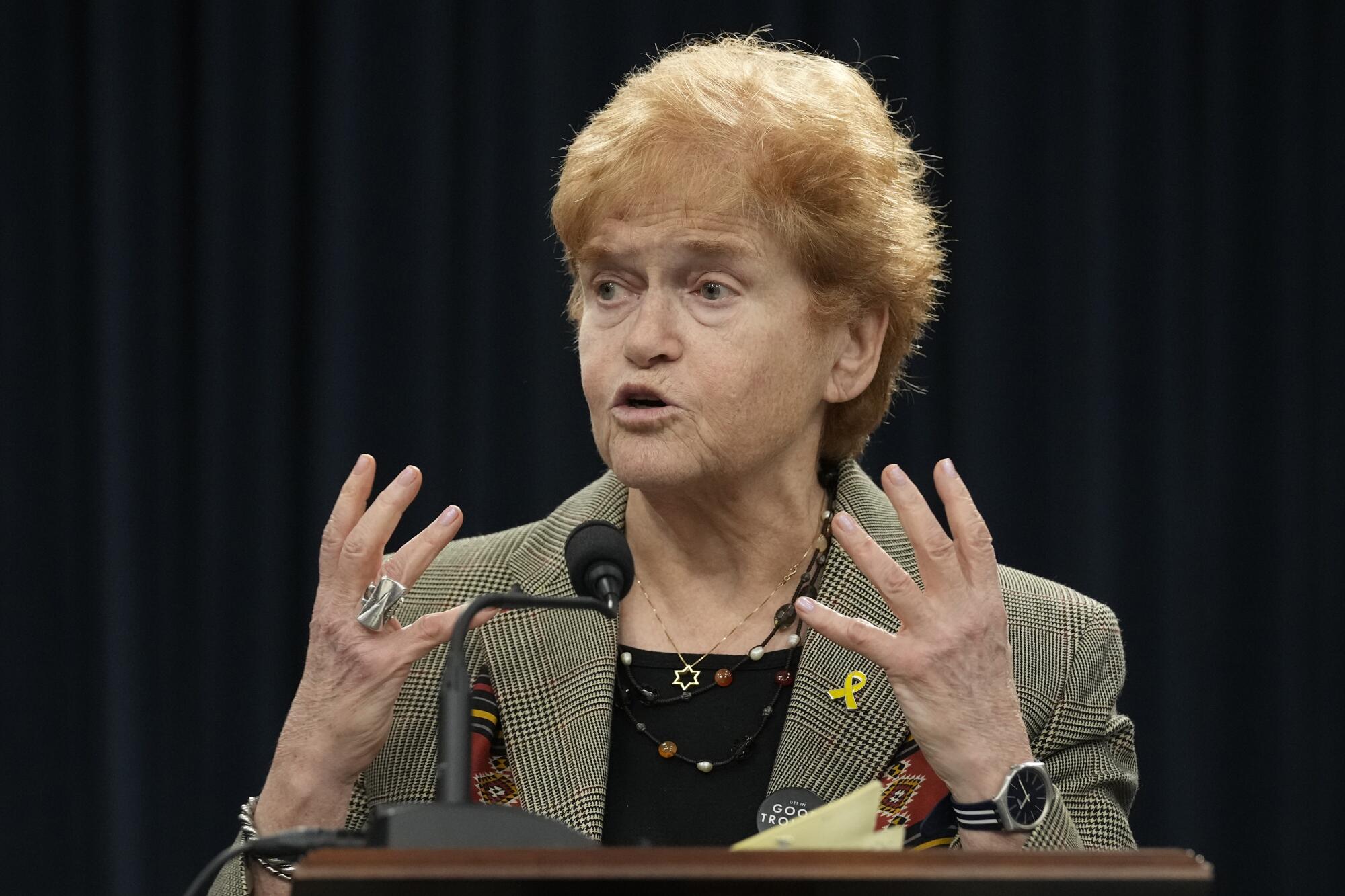
The role is well-suited for her, but it has been immensely fraught since Oct.7, when Hamas militants launched a brutal assault on southern Israel, claiming about 1,200 Jewish lives — the most in a single day since the Holocaust. The attack was followed by Israel’s punishing war in the Gaza Strip that health authorities there say has killed more than 38,000 Palestinians.
Among the fallout have been waves of antisemitism in the U.S. and elsewhere, in part as a reaction to Israel’s devastating operations and the continuing death toll. Jewish people wearing kippot have been attacked in L.A., and “Death to Jews” slogans have been scrawled in public places from Manhattan to Berlin.
In some ways, Lipstadt’s work has become easier, because antisemitism, she said, is as clear as ever.
It is “more real, more pressing, more immediate,” Liptstadt said in an interview in her fifth-floor State Department office during a recent break in her travels.
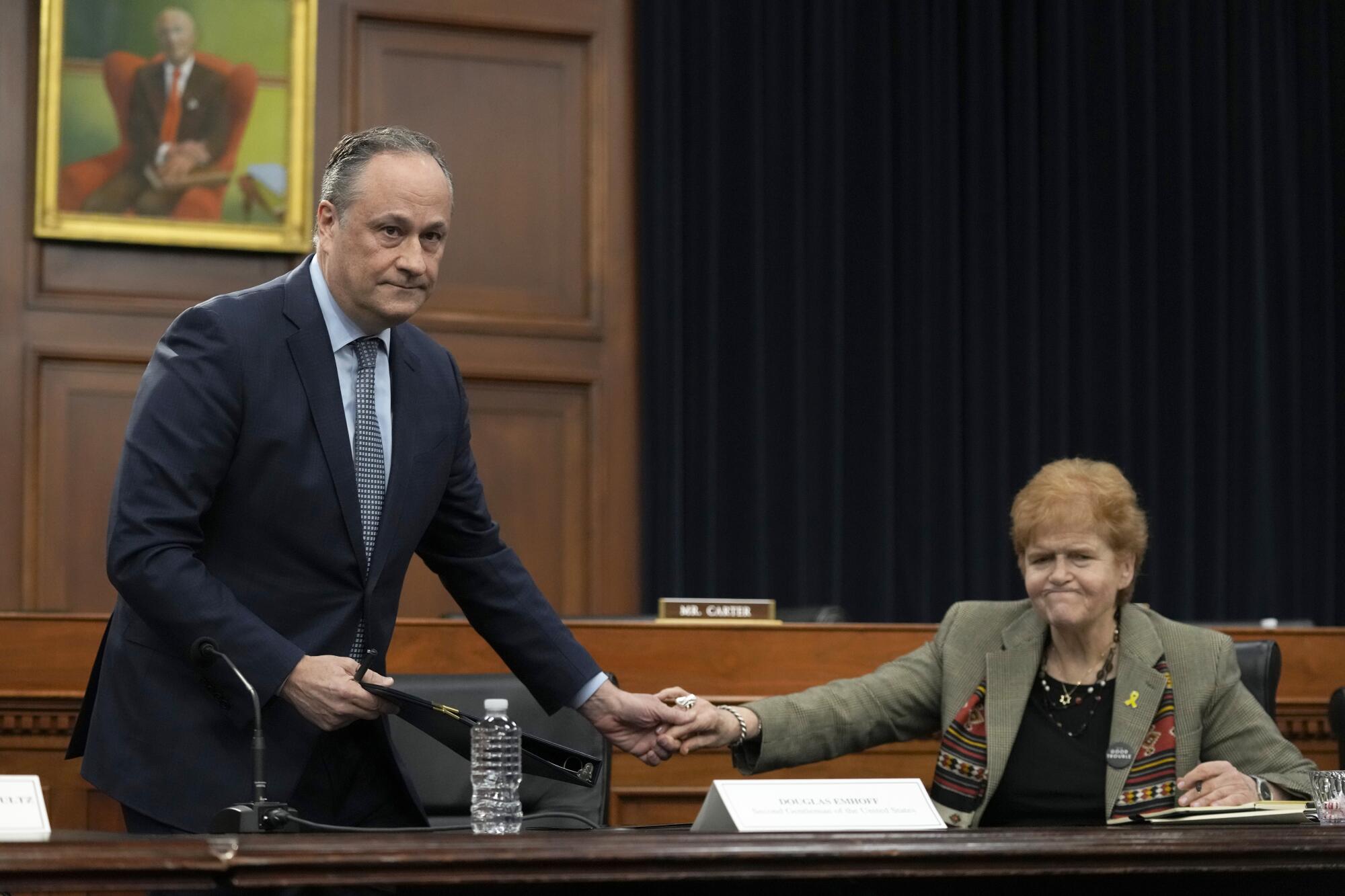
She considers antisemitism to be the oldest and “most consistent” hatred in world history, pointing to its presence in Christian, Muslim and atheist societies, left and right, religious and secular.
“I want people to take antisemitism seriously,” she said.
Lipstadt is perhaps best known as the scholar who took on Holocaust denier David Irving in a British court in the late 1990s. The long legal battle, in which she eventually prevailed, was the subject of her book “Denial” and then a movie with the same name starring Rachel Weisz as Lipstadt.
During filming of the 2016 picture, the actor called the diplomat and asked her to read lines. This helped Weisz to emulate her, according to Lipstadt, who praised the actor’s portrayal — which is heroic, but not always complimentary.
Today, Lipstadt often finds herself challenging those who deny Israel’s right to exist. Her first overseas trip as special envoy was to Saudi Arabia, a country that still does not recognize Israel, like much of the Arab world. She went to the barren desert kingdom in the dead heat of summer; colleagues thought she was nuts.
“Making a point,” she said.
Born and educated in New York, Lipstadt, 77, has taught at UCLA and Occidental College and directed the Brandeis-Bardin Institute in Simi Valley. She wears a Star of David necklace and has rust-colored hair and an easy, throaty laugh. She is remarkably forthright in a government agency not known for candor.
The antisemitism position that Lipstadt occupies was created in 2004, but at times has been vacant — the longest absence occurring during the Trump administration. President Biden elevated the role to the level of ambassador.
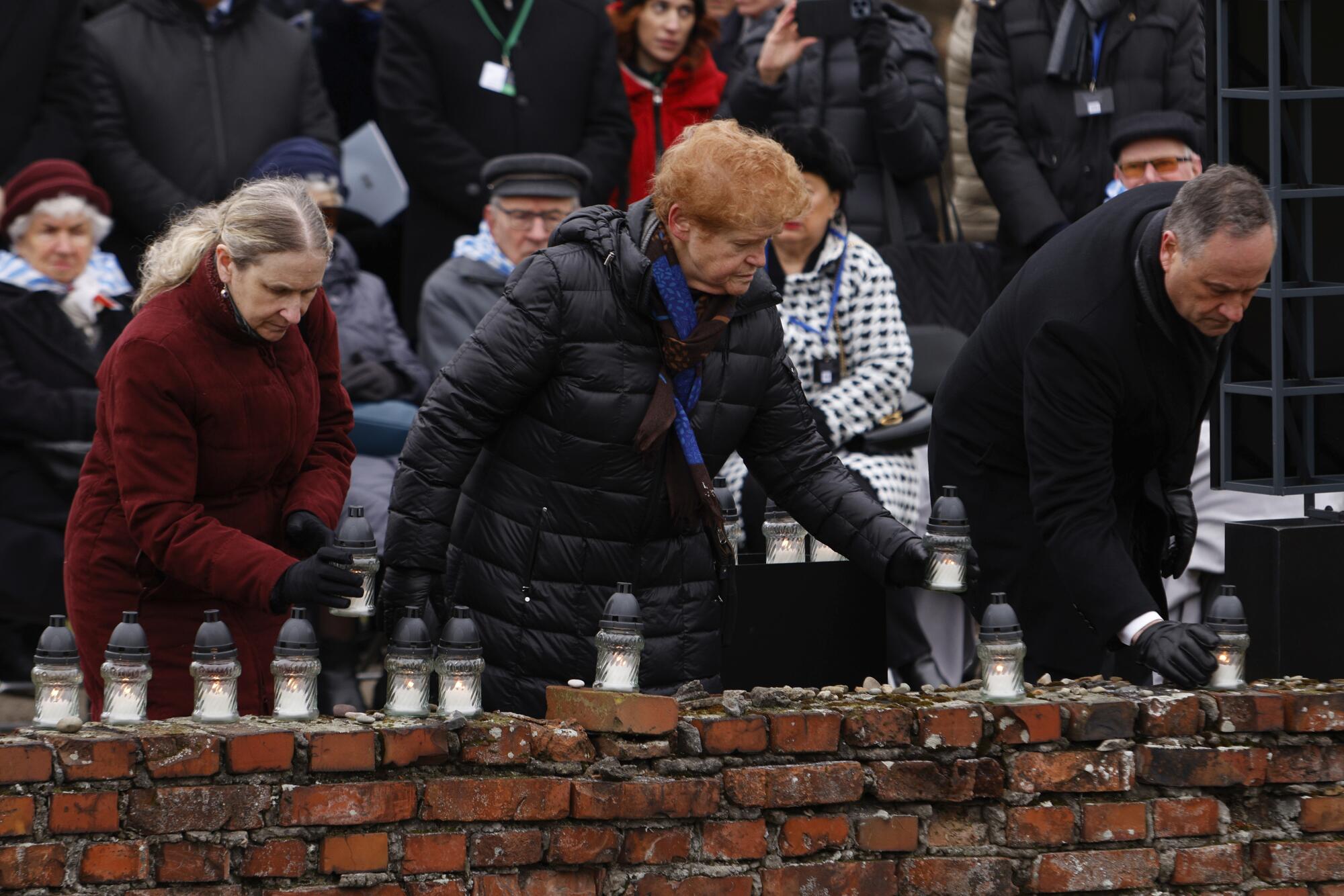
Some critics, especially in the Muslim community, see the heightened focus on antisemitism as a bias that excludes other minorities. In late 2021, the House of Representatives passed a measure that would create a special envoy to monitor and combat Islamophobia worldwide, but the Senate has never acted on it.
The State Department says it confronts hatred against other groups — including anti-Muslim violence, which is also on the rise — elsewhere within its bureaucracy, such as in its office of religious freedom.
Lipstadt likes to think of herself as an “equal opportunity” defender of religious freedom and human rights.
In her first months on the job, Lipstadt defended a group of ultra-Orthodox Jews kicked off a Lufthansa flight for refusing to wear COVID-19 masks; a liberal Jewish group harassed by Orthodox Jews when attempting to celebrate bar and bat mitzvot at the Western Wall in Jerusalem; and Jews and Muslims up against a European ban on the religious-ruled slaughter of goats and other animals.
Her confirmation to the post was held up for months by Republican Sen. Ron Johnson of Wisconsin, presumably because Lipstadt had accused Johnson of supporting white supremacy by making supportive comments about the Jan. 6 riot at the Capitol, where some participants brandished Nazi-inspired symbols.
Today, her office is decorated with kippot that were gifts from officials and representatives as diverse as the United Arab Emirates and the FBI. She also displays a beaded menorah in the shape of a lion that was given to her during a trip to South Africa. To a visitor, she can quote passages of the Bible and recounts a recent chat with Pope Francis at the Vatican.
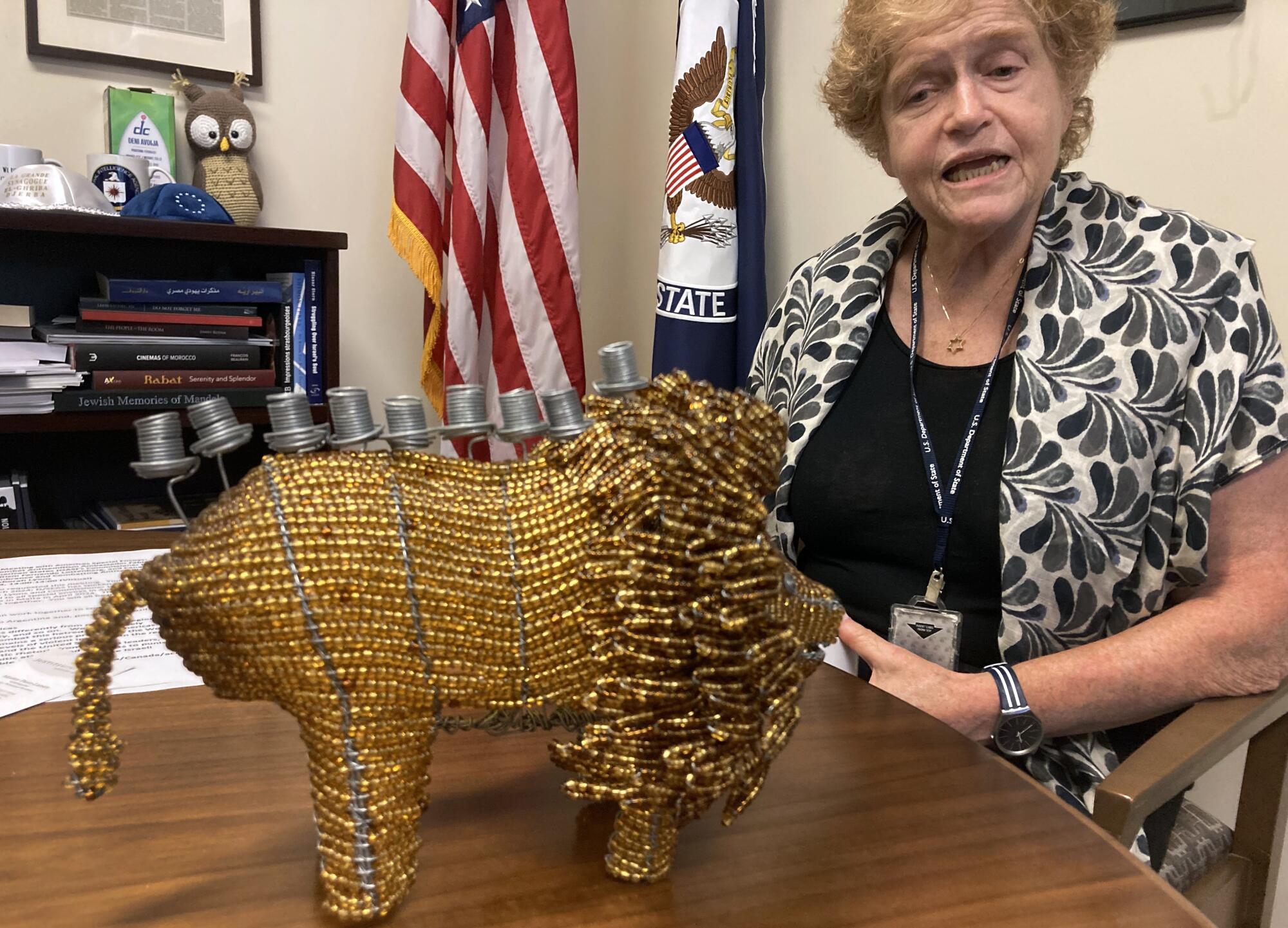
Hearing her discuss the Old Testament, Exodus, the pharaohs and Joseph, the pope pronounced her a theologian.
“I’m not,” she told The Times with a laugh. “But I guess when the head of the Catholic Church calls you a theologian, you take it.”
A large photo of the pope has joined her office decorations of kippot and menorahs.
While most government officials she meets no longer question the existence of antisemitism, many have questions on how to confront it. Education and diplomacy top a long list of options. It remains unclear how much political will there is in many parts of the world to take up the cause.
And while Oct. 7 brought anti-Jewish hatred to the fore, it also forced Lipstadt to cancel what was going to be a “robust” follow-up trip to Saudi Arabia. The timing of the goal of the trip, to reach out to the broader Saudi public, was not right, she said. The trip has not been rescheduled.
Lipstadt’s job does not include looking at antisemitism within the United States. Yet the prejudice and what she calls its political weaponization is universal and globally intertwined, she said. Incidents have been seen on American university campuses as part of the protests in support of Palestinians.
“I have friends in this country and other countries who ... lean politically right, and they see antisemitism on the left, and they are accurate ... absolutely on target,” she said. “And I have friends on the left who see it on the right, and they too are absolutely on target. The problem is they often fail to see it standing next to them ... from people with whom they agree on most other things.”
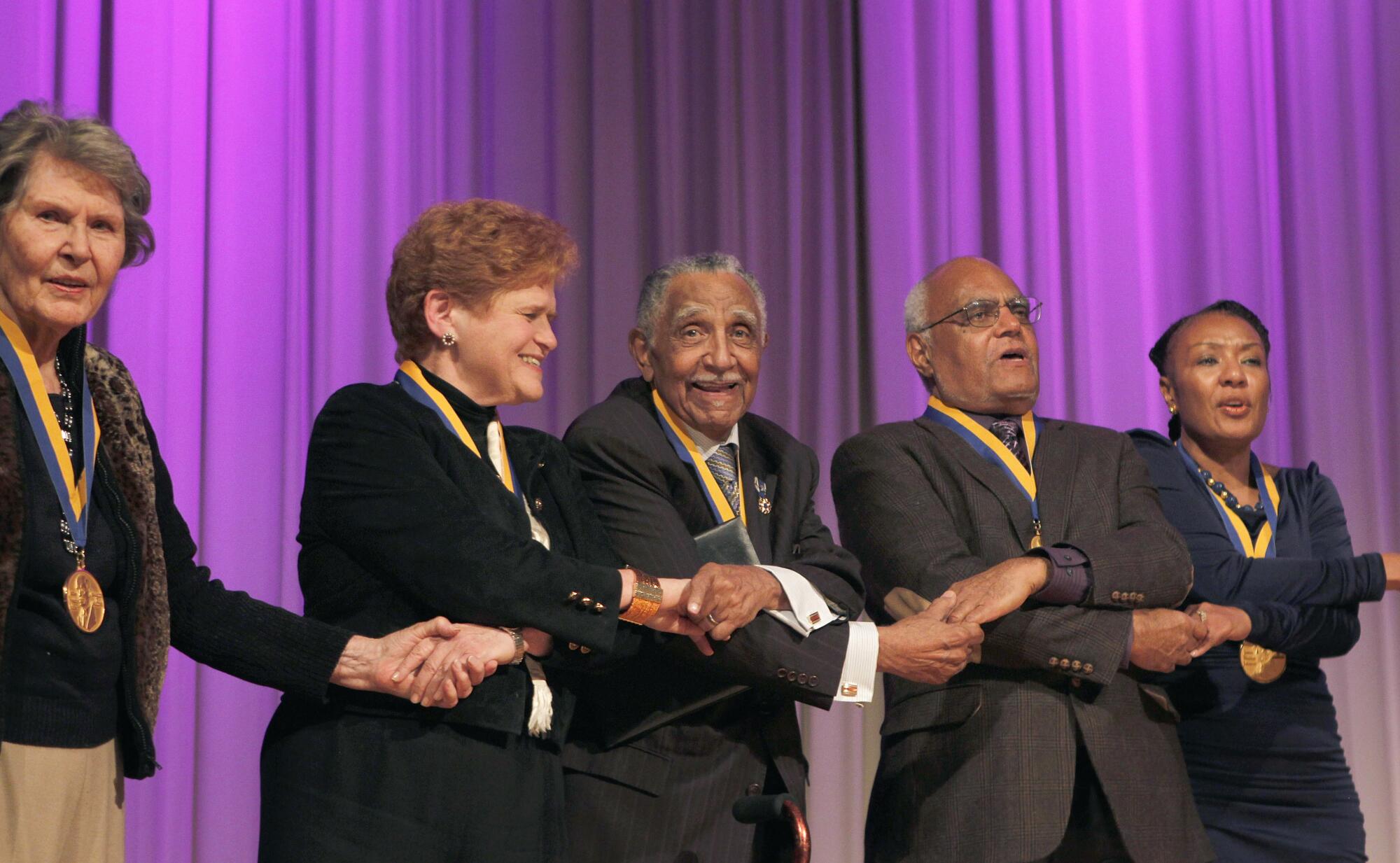
She continued: “When you only see it on the other side of the political transom ... I have to ask: Are you interested in fighting antisemitism, or was your main objective to beat up on your enemies?”
Lipstadt is adamant that criticizing Israeli policy should not be considered antisemitic. Were that the case, she said, you’d have to brand as antisemites the thousands of Israeli Jews, some still in their military uniforms, who regularly fill the streets of Tel Aviv or Jerusalem to protest the government of Prime Minister Benjamin Netanyahu.
“Absolutely OK,” she said of protests. “But it’s when you say Israel does not have a right to exist” that is objectionable, she said.
The state of Israel was created 76 years ago by U.N. mandate as a refuge for Jews after the Holocaust. Establishment of Israel displaced hundreds of thousands of Palestinians.
“You’ve got ... political things that you may feel very strongly about,” Lipstadt said. “But that doesn’t allow for prejudice, or hatred.”
More to Read
Get the L.A. Times Politics newsletter
Deeply reported insights into legislation, politics and policy from Sacramento, Washington and beyond. In your inbox three times per week.
You may occasionally receive promotional content from the Los Angeles Times.











